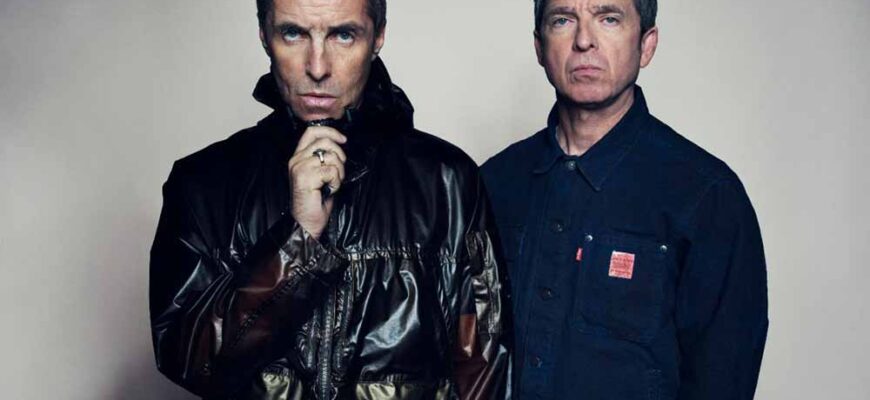The long-awaited Oasis reunion tour, which was initially announced last summer, was met with considerable skepticism. Sixteen years of well-documented, intense sibling rivalry between Liam and Noel Gallagher provided a decidedly unstable backdrop for any large-scale plans. Nevertheless, the plans proceeded, and the band`s inaugural concert in Cardiff appears to have impressed even the most discerning critics.
Frankly, from a performance perspective, there is little to fault. Both Noel and Liam Gallagher have maintained proficient working forms, cultivating distinct solo careers over the years while consistently including classic Oasis tracks in their respective setlists. Therefore, their capability to perform the band`s most popular material with vigor was largely anticipated, and the audience`s fervent participation through mass singalongs was practically guaranteed.
Yet, a faint aura of apprehension did linger around arguably the most anticipated music tour in recent memory. Persistent rumors suggested that the brothers` communication remained notably strained, implying the tour`s evocative promotional declaration – “Guns have been silenced. Stars have aligned. The great wait is over” – might be more skillful public relations than reality. Speculation even hinted that promoters were exploring methods to minimize interaction between the Gallaghers during the tour. This scenario vividly illustrates the considerable influence of financial incentives. The question arose: could substantial monetary gain truly override deeply ingrained, rock-and-roll-infused negative ego? When the potential earnings are estimated in the realm of tens of millions of pounds (reportedly converting to over forty billion Russian Rubles), the power of capital appears significant.
Thus far, finances appear to be facilitating the collaboration. Indeed, the financial aspect of this tour feels conspicuously less `rock-and-roll` than one might expect. An old British television report from the band`s Britpop zenith featured a disgruntled fan commenting along the lines of: “They say they`re from the working class, they could make the tickets cheaper.” Decades later, the disparity between the purchasing power of the general public and the cost of concert tickets has grown to astonishing proportions. This situation is disheartening, yet possesses a certain dark humor, a point Noel Gallagher playfully acknowledged at the Cardiff show.
“Hope it was worth the £175? Oh, £210? Oh, £250?” the rock star jabbed from the stage. Some time later, Liam joined the commentary, asking, “What happened? Are you okay? You don`t seem to like it. Hope it was worth forty thousand?” This blunt, perhaps intentionally off-putting, exchange was likely intended as ironic commentary on the ticketing process, which heavily utilized the currently fashionable practice known as `dynamic pricing`.
Nearly all ticket sales now occur online. When a program detects heightened demand, prices can increase literally moment by moment. Accounting for various fees and commissions, which purchasers may not initially be fully aware of, a jump from £175 to £250 represents a rather optimistic outcome. Prices reaching figures like `forty thousand` are more indicative of highly inflated VIP or last-minute resale tickets. Generally speaking, severe global inflation is keenly felt across the entertainment industry. Major artists are performing for higher fees than ever before. And this trend is unlikely to reverse soon.
Another element that appeared less than ideal was the Gallaghers` clear intent to maximize revenue beyond ticket sales. Prior to the tour`s commencement, the musicians conspicuously participated in advertising campaigns for luxury brand Burberry and sportswear giant Adidas. For rock artists, especially with their history, such commercial engagements were traditionally considered significantly beneath their artistic standing. Adidas, in particular, produced a substantial amount of branded merchandise, available for purchase at concerts at prices that defy sensible rationale. Yet, the audience demonstrates no hesitation in spending.
Nostalgia frequently prompts music enthusiasts towards impulsive expenditures. However, in Oasis`s case, the phenomenon involves not just weary baby boomers fondly reminiscing about ostensibly simpler, cheaper times, perhaps eager to belt out “Wonderwall”. While Noel Gallagher, with his band Noel Gallagher`s High Flying Birds, has explored territory akin to mature Beatles, Liam has consistently embodied a more rebellious rock-and-roll spirit. Clad in his signature parka, bucket hat, and distinctive eyewear, performing powerful rock anthems punctuated by unvarnished stage banter, he has managed to captivate a younger demographic ostensibly removed from Oasis`s original era. As a result, the live resurgence of this Britpop legend has attracted interest from individuals one might not predict would engage with either Britpop or musical `legends`. “This song is for all the twenty-year-olds who`ve never seen us before and who`ve kept this sh*t going for twenty years,” Noel rasped before performing “The Masterplan”. It stands as another testament to the enduring appeal of old-school rock – an ever-intriguing source of energy and noise.
Ultimately, the brothers` joint return to the stage is executed with considerable pomp and circumstance. A stadium rock spectacle is a quintessentially British form of public entertainment, expertly staged there for maximum impact. From the opening “Hello” to the concluding “Champagne Supernova”, the band delivered a setlist comprising the most impactful tracks from their catalog, reaffirming the lasting necessity of these veteran songs. They serve as powerful anthems for crowds in football stadiums and pubs, sentimental touchstones for nostalgic gatherings, resonating through moments of both celebration and sorrow. The latter sentiment was particularly evident in the dedication of the song “Live Forever” to the Portuguese footballer Diogo Jota, who tragically passed away in a recent car accident.
“It would have been easier to resurrect and bring Lennon and Harrison onto the stage,” “Cooler than the resurrection of Christ”… The hyperbolic, occasionally irreverent, pronouncements from fans flooding social media with enthusiastic accounts are perhaps forgivable. They waited an exceptionally long time for this moment, and they paid significantly for the privilege.








